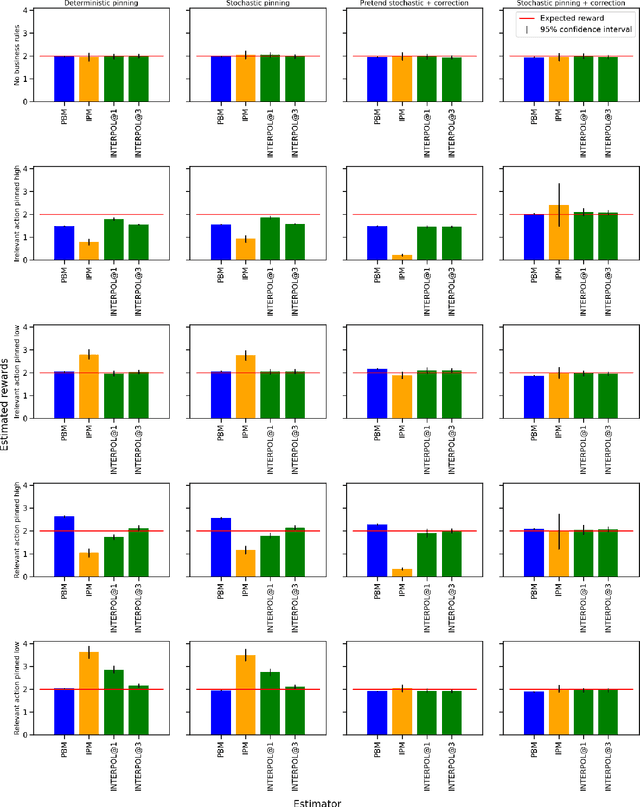Matej Jakimov
Unbiased Offline Evaluation for Learning to Rank with Business Rules
Nov 03, 2023


Abstract:For industrial learning-to-rank (LTR) systems, it is common that the output of a ranking model is modified, either as a results of post-processing logic that enforces business requirements, or as a result of unforeseen design flaws or bugs present in real-world production systems. This poses a challenge for deploying off-policy learning and evaluation methods, as these often rely on the assumption that rankings implied by the model's scores coincide with displayed items to the users. Further requirements for reliable offline evaluation are proper randomization and correct estimation of the propensities of displaying each item in any given position of the ranking, which are also impacted by the aforementioned post-processing. We investigate empirically how these scenarios impair off-policy evaluation for learning-to-rank models. We then propose a novel correction method based on the Birkhoff-von-Neumann decomposition that is robust to this type of post-processing. We obtain more accurate off-policy estimates in offline experiments, overcoming the problem of post-processed rankings. To the best of our knowledge this is the first study on the impact of real-world business rules on offline evaluation of LTR models.
 Add to Chrome
Add to Chrome Add to Firefox
Add to Firefox Add to Edge
Add to Edge